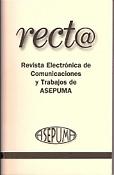Revisiting the Expectancy/Disconfirmation Paradigm for Small Questionaries: The Cultural/Heritage Tourism Case
Keywords:
Continuity correction, 2x2 contingency tables, attributes, assimilation theory, satisfaction, cultural/heritage tourismAbstract
Despite the emergence of new strategies, models of expectancy/disconfirmation are still very popular in tourist research. This is why they are revisited in three aspects: (i) unlike usual research, and in order to correct subjectivism, tourists’ overall satisfaction is measured through a weighted mean of satisfaction with individual attributes; (ii) an alternative to these models is given for simple questionnaires where tourists only have to answer if some tourist services have lived up to their expectations or in what extent they have been exceeded or fallen short of such expectations; and (iii) the Assimilation Theory is revisited in terms of positive association between expectancy and slight disconfirmation (what we call the positive version of the Assimilation Theory). A chi-square statistic including an asymmetric continuity correction is provided to test the independence hypothesis. This article relies on the information provided by 1,500 respondents who were given a small questionnaire specially designed to measure tourist satisfaction in the emblematic part of Toledo, Spain (a UNESCO World Heritage City).
Downloads
Publication Facts
Reviewer profiles N/A
Author statements
Indexed in
-
—
- Academic society
- N/A
- Publisher
- UMA Editorial. Universidad de Málaga
Downloads
Published
How to Cite
Issue
Section
License

This work is licensed under a Creative Commons Attribution-NonCommercial 4.0 International License.





